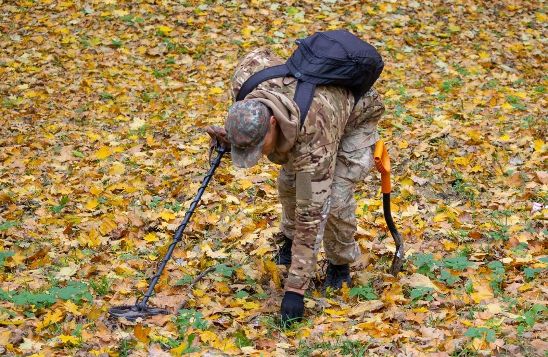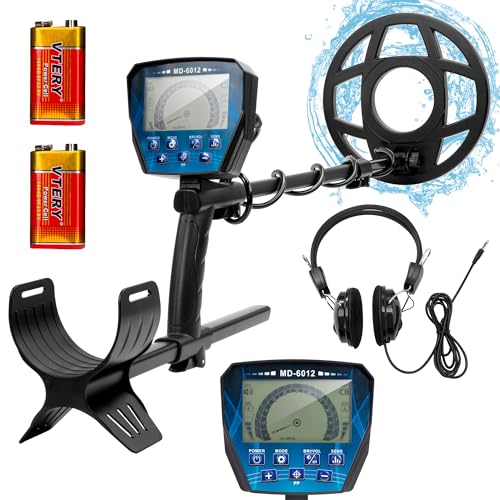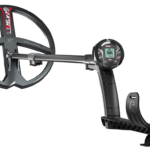
Ever wondered what it’s like to be a modern-day treasure hunter? Grab your metal detector and join the hunt!
Our top 10 tips, designed especially for beginner metal detectorists, will help you unlock all of its hidden potential.
From choosing the right model to interpreting signals more accurately, these expert insights are sure to enhance any search – ready for an adventure?
Then read on for everything you need to know about becoming successful in this thrilling hobby!
1. Start by learning the basics of how metal detectors work

You should first become familiar with the fundamentals of utilizing a metal detector or even who invented it.. Included here are the sorts of metals that metal detectors can detect as well as how they operate. Metal detectors are available in a wide variety of models.
Different sorts of metals can be found and each one operates differently. You can operate your metal detector more efficiently and achieve better results if you are aware of the fundamentals of metal detecting as well as the capabilities of your particular metal detector.
Learn about your metal detector before you begin. To change the sensitivity, ground balance, and other parameters, most contain a control panel with buttons and dials.
Recognize the signals and learn to read them.
It’s crucial to know how to operate your metal detector and the kinds of metals it can identify. Varied types of metals have different sensitivities for various metal detectors.
Knowing what your metal detector can detect is therefore essential. You will find better success in your quest for metal artifacts if you do this. You will be able to narrow down your search to places where you have a better chance of discovering the metals you’re looking for.
Overall, for beginning metal detectorists, understanding the fundamentals of how metal detectors operate and the kinds of metals they can detect is crucial.
By understanding these concepts, you’ll be able to use your metal detector more effectively and increase your chances of finding interesting and valuable metal objects.
2. Practice using your metal detector in your own backyard or a local park.

It is wise to practice in your backyard or at a nearby park if you want to learn how to use a metal detector.
In this manner, you can become accustomed to the metal detector’s operation and learn how to interpret the indications it emits. Without the added strain of striving to locate valuable items, learning is simpler.
You may try out various settings and approaches when you practice in your garden or a nearby park, which is one advantage.
To see how the signals your metal detector emits are affected by the sensitivity and ground balance settings, you can experiment. You can also practice.
You may obtain a better understanding of the kinds of metals that are typically found in your area by practicing in your backyard or a nearby park after you’ve learned how to use your metal detector.
This will give you a general concept of what to expect and what kinds of metals to look for when you go metal detecting in other places.
In conclusion, practicing with a metal detector in your backyard or a nearby park is a good idea.
You will acquire a basic understanding of how the metal detector operates and how to decipher its signals.
You’ll be able to concentrate on learning and developing your talents without the distractions of starting out in an unfamiliar and regulated atmosphere
3. Research local laws and regulations before going metal detecting on public or private land

Do your homework on local laws and ordinances before you go metal detecting. You may need to abide by unique metal detecting regulations in some locations. Check the laws and regulations in the area where you will be metal detecting because they may differ depending on the place.
Researching local rules and ordinances is important for two reasons. To start, stay clear of any legal troubles. For instance, there may be restrictions or outright bans on metal detecting on public property in some places. You risk fines or other consequences if you break these rules or laws.
Respect for other people’s rights and interests is the second justification for learning about local laws and ordinances. For instance, there may be unique regulations regarding metal detecting on historic sites or protected territories in some places. It’s crucial to abide by these guidelines in order to protect the authenticity of these websites.
Overall, before going metal detecting on public or private property, you should research local laws and restrictions.
This will assist you in ensuring that you are abiding by the law and preventing any problems. You can indulge in your activity while still respecting the rights and interests of others if you abide by these laws and rules.
4. Don’t be afraid to ask for help or advice from more experienced metal detectorists

It is typical to have inquiries and require assistance from experts if you are new to metal detecting. Seeking advice from other metal detectorists can be a beneficial approach to increasing your knowledge and experience, whether you are just starting out and trying to learn the fundamentals or you are looking for recommendations on how to get better.
Online forums and groups are some of the best resources for finding more knowledgeable metal detectorists who can offer assistance and guidance.
Metal detecting-specific internet groups are widely available, and they can be excellent places to meet other amateurs and gain recommendations.
Online forums exist where you can ask more knowledgeable people about metal detecting questions.
Along with learning from those who approach metal detecting from various angles and views, you can also offer your own experiences and thoughts.
Asking for assistance or guidance from those who have been metal detecting longer than you are is not something to be afraid of.
You can interact with other hobbyists and obtain advice and insights by participating in a variety of online forums and groups.
These resources might be very beneficial for enhancing your metal-detecting knowledge and abilities.
5. Invest in a good quality metal detector and accessories

Beginner metal detectorists should make sure to invest in a high-quality metal detector and accessories because these items can improve your ability to detect metal and make finding and retrieving artifacts simpler.
You will discover more metal things if you use a high-quality metal detector. It will be more accurate and sensitive. Smaller and deeper metal items are frequently detectable by higher-quality metal detectors.
Additionally, they might contain options like ground balance and sensitivity controls that let you focus your search and achieve better outcomes.
You may discover metal more easily by doing a number of things. In noisy environments, for instance, headphones can help you hear the signals from your metal detector better.
You’ll need to dig the target up after you’ve found it. You will need a high-quality digging tool for this.
Investing in high-quality accessories when you first start out is crucial to your detecting success.
6. Pay attention to the ground conditions where you’re searching

When using a metal detector, it’s critical to pay close attention to the state of the ground.
Different types of soil, plants, and other factors might affect how well your metal detector works.
By being aware of certain ground conditions and how they affect your metal detector, you may alter your search tactics and enhance your search outcomes.
The kind of surface you’re searching for can have an impact on how effectively your detector performs.
For instance, the metal detector might not perform as well if the ground is comprised of clay or heavy loam because it would be challenging for the device to pierce the surface.
However, the machine would have an easier time scanning and detecting metal things if the ground was rockier or sand-covered.
A metal detector’s effectiveness can also be impacted by vegetation. For instance, it could be more difficult for your metal detector to find metal objects buried beneath a thick layer of grass or weeds if you’re looking in that area.
It can also be difficult to tell apart common metal rubbish like nails and screws from more precious metal artifacts while searching in an area where there is a lot of metal trash.
The search area’s ground conditions should be taken into consideration. How well your metal detector functions can vary depending on the type of soil, vegetation, and other elements.
Understanding these ground factors and how your metal detector is affected by them will help you modify your search strategies and uncover more items.
7. Look for areas that are likely to have metal objects

If you are a metal detectorist, you should search for locations where you are more likely to find metal objects.
Metal detecting might be more successful in certain locations. Old homesteads, parks, and historical sites are a few examples of these types of places.
A wonderful spot to look for metal scraps like nails, screws, and other rubbish is an old farmhouse. Larger metal things like old tools or other household goods might be present in these places as well, making a search worthwhile.
Parks may include both valuables and metal rubbish, making them an excellent area to look for metal artifacts. You might discover old coins or other small metal objects, for instance, or other metal objects that have fallen from a playground or park furniture.
Finding relics or other objects with historical or cultural significance can be done by searching for metal objects at historical places.
However, since these areas may be protected and you may require special permission to search them, you need to be aware of any laws or restrictions that may apply to metal detecting on historical sites.
Look in places where there are likely to be metal objects, including abandoned homesteads, parks, and historical locations, to increase your chances of discovering unique and priceless items.
Just make sure you adhere to any rules or legislation that might be relevant to metal detecting in these locations.
8. Keep an eye out for any indicators of metal objects

When you are using a metal detector, it is a good idea to look for things that might show there is metal nearby.
This could be nails, screws, or other pieces of metal. These can be signs that there are larger pieces of metal buried nearby. If you search in these areas, you might find something interesting and valuable.
A random collection of nails or screws, for instance, could indicate the presence of other metal artifacts if you are scouring an ancient farm or homestead area.
Old household items, discarded tools, or even larger items like vintage machinery could all be made of metal.
Similarly, if you come across a hinge or a latch that seems out of place among the metal debris, it may be a hint that there are further metal objects around that are worth looking for.
Paying attention to the surroundings and the terrain is another technique to search for clues to the presence of metal objects.
For instance, you might find metal things buried nearby if you come across a location with a lot of pebbles or other debris.
The presence of a depression or mound in the ground may also indicate the presence of metal objects buried nearby.
In general, you’ll boost your chances of discovering intriguing and priceless items by keeping an eye out for any signs of metal objects, such as nails, screws, or other metal detritus.
By searching in areas where these indicators are present, you’ll be able to focus your search and potentially uncover hidden treasures.
9. Don’t get discouraged if you come up blank.

A pastime like metal detecting requires time and experience, so keep that in mind. It’s acceptable if you don’t succeed in finding anything on your first attempt.
You’ll get better at operating a metal detector and discovering interesting items if you keep practicing.
For a variety of reasons, you might not locate anything on your first few metal-detecting excursions. One explanation is that you might be looking in places where metal things are unlikely to be present.
As opposed to hunting in an old homestead or agricultural area, it’s less likely that you’ll find metal artifacts if you’re searching in a newly cleaned-up park.
If you don’t find anything on your first few excursions, you might not be employing your metal detector to its full potential.
Learning how to decipher the signals your metal detector emits and how to modify the settings for optimal performance can take some time and experience.
It might take a few outings if you’re new to metal detecting to develop a sense of how to use your detector and what to look for when looking for metal things.
Finally, remember that metal detecting is a hobby that occasionally calls for luck. You might not find anything, even if you’re operating your metal detector properly and looking in places where there are likely to be metal things there.
It’s necessary to be persistent and patient because this is only a characteristic of metal detecting.
Overall, if you don’t locate anything on your first few metal-detecting excursions, don’t be disheartened. Time may be needed.
10. Have fun and stay safe!

When you metal detect, it is important to have fun and be safe. This will help you enjoy the hobby more.
Metal detecting can be rewarding and exciting, but you need to take precautions to make sure you are safe and healthy while searching.
It is important to wear protective clothing when metal detecting, such as gloves, long pants, and sturdy shoes.
You will be shielded from the sun and other elements while also avoiding cuts from sharp objects thanks to these things.
Digging with caution is another way to keep yourself safe when using a metal detector.
Depending on where you are looking and the type of metal detector you are using, you might need to dig up the ground to find the metal objects the machine has found.
Use the proper equipment, such as a trowel or shovel, when digging. Watch out for any potential hazards like buried electrical wires or other objects that can be dangerously hidden beneath the earth.
Overall, it’s crucial to enjoy yourself when metal detecting and keep yourself safe. You may both enjoy this thrilling hobby and keep yourself safe by taking the necessary precautions, including as donning protective equipment and exercising caution when excavating.
Conclusion
In conclusion, metal detecting can be a fun and gratifying activity, but it’s crucial for new metal detectorists to start by learning the fundamentals, getting practice in familiar settings, and being aware of local rules and regulations.
You can maximize the potential of your metal detector and delight in the thrill of treasure hunting by paying attention to these suggestions and getting advice from more seasoned metal detectorists.
Metal detecting may be an enjoyable and interesting activity that offers countless opportunities for discovery, whether you’re searching for priceless coins, historical items, or just the thrill of the hunt.
So if you’re prepared to begin your career as a metal detectorist, remember these 10 pointers and have fun searching for treasure!














